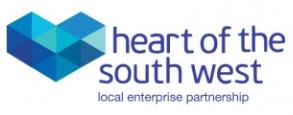MIT REAP UK
MIT REAP UK is expediting productivity, employment, and returns from research – and aiding in COVID-19 pandemic economic recovery – in six key UK communities.
In March 2020, MIT REAP launched a new pilot program, MIT REAP UK. The program focuses the MIT REAP Core solution within a single region. Gathering teams from across the target region, the program drives the creation and execution of actionable MIT REAP strategies to strengthen innovation and entrepreneurship.
MIT REAP UK is leveraging learnings from the MIT REAP Core Cohort 6 team, Leeds City, UK – graduating October 2020 – to expedite productivity, employment, and returns from research in six additional UK communities. Originally conceived as an intense six-month long program, MIT REAP UK expanded its engagement to accommodate new challenges posed by the COVID-19 pandemic.
MIT REAP UK is supported by the UK Department for Business, Energy & Industrial Strategy (BEIS), and by Loughborough University. At its first workshop in London, the UK team set a goal to work closely with Leeds City, UK team members to help develop and launch local strategies. As the COVID-19 pandemic unfolded, MIT REAP UK swiftly pivoted its program to the virtual environment, providing collaborative tools and strategies to support the six communities with immediate and ongoing economic recovery.
MIT REAP UK has made significant progress over the summer, despite the pandemic, and is ready to tackle next steps at its second workshop. At the all-virtual workshop, the UK teams will report back on their strategies for economic recovery, ‘building back better,’ and leveling-up their communities – informed by MIT REAP frameworks and their own extensive research.
Learn more about MIT REAP UK goals and objectives below, as well as the headline details about the six UK teams comprising multiple LEPs.

MIT REAP UK will support regional teams of leaders representing entrepreneurs, risk capital providers, corporates, academia, and governments in an evidence-based approach to accelerating innovation and entrepreneurship in each team’s community. MIT REAP UK draws on the frameworks founded and established through the MIT REAP Core program and translates them into the UK context with a cohort composed of entirely UK-based teams.
The UK pilot of MIT REAP’s new focused program builds on MIT REAP’s experience with over 50 regions from around the world since its inception in 2012, including UK-based teams from London, Scotland, Wales and currently the Leeds City, UK team, Cohort 6, graduating October 2020. In collaboration with the UK Department for Business, Energy & Industrial Strategy (BEIS), and Loughborough University, MIT REAP UK will deepen collective efforts and community of practice of entrepreneurship and innovation by engaging key communities across the UK.. The benefit of MIT’s theoretical and practice-based expertise and regional leadership, focused on this new initiative to support productivity growth, is a defining factor in the delivery of the UK’s local Industrial Strategies.



Cheshire, Lancashire and Cumbria Local Enterprise Partnerships (LEPs) represent a coterminous North West Coastal Arc geography with common challenges and opportunities as evidenced in their Local Industrial Strategies (LIS’), Strategic Economic Plans (SEPs) and Science & Innovation Audits (SIAs).
They are part of the MIT REAP UK program to assist their partners with understanding their regional complementarity and equip them to implement a strategy at scale for transitioning to an innovative digital and low carbon economy.

The Heart of the South West LEP, is a partnership between Local and District Authorities, Higher and Further Education Institutions, and the private sector across Plymouth, Devon, Somerset, and Torbay.
They are joining the MIT REAP UK program for the opportunity to get support that is tailored to their local business environment and raise firm-level productivity. Utilizing the fact that the HotSW is is at a stage where it is working to translate evidence into effective policy.

With an economy worth £24.5bn in GVA per annum, equivalent to around a quarter of the East Midlands total, Leicester and Leicestershire is home to over 42,000 businesses. Using a robust evidence base that draws on a mix of published data, forecasts, consultations, and strategy documents as well as existing studies and business surveys, a work of the Local industrial strategy nearing completion.
Innovation across the LLEP area is supported by the presence and associated activities of its three universities, that are leading research and proactively engage with local communities and businesses. Their involvement with the MIT REAP UK Program is aimed at receiving the expertise, resources and support to enable the LLEP to work towards developing a local innovation ecosystem framework focused on interdependent roles of innovative and entrepreneurial capacity.

Overseen by the North East LEP Board and feeding into the LEP Business Growth, Skills and Innovation Advisory Boards the North East LEP core team consists of senior representation from the North East LEP (including the SME Board Representative), regional universities of Sunderland, Newcastle, Northumbria and Durham, North of Tyne Mayoral Combined Authority (Newcastle, North Tyneside, Northumberland), North East Combined Authority (Sunderland, South Tyneside, Gateshead, County Durham) and representatives from regional SMEs and industrial clusters.
They are part of the MIT REAP UK program to build on their existing evidence base to guide the establishment of their ecosystem that will drive the delivery of the North East Local Industrial Strategy (LIS) and level up entrepreneurial activity and firm level innovation and productivity.

Sheffield City Region is focussing its Strategic Economic Plan on supporting the development of collaborative business ecosystems that cultivate entrepreneurial cultures and nurture innovative companies. They are working to establish new partnerships with businesses, unlocking growth contingent upon social impact whilst supporting our transition to a low carbon economy.
Taking part in the MIT REAP UK program they are aiming to support the SCR ecosystem by acting as a catalyst in support of the development of innovation districts in areas such as Advanced Manufacturing, the development of effective supply chains and the emerging innovation ecosystems that support them.

Formed with senior leaders representative of the West Midlands’ ecosystem who bring insights and networks, the West Midlands Combined Authority is focused on how to develop the ecosystem to increase SME engagement and innovation capacity as a key driver of productivity, particularly in the manufacturing supply chains sector.
Their involvement in MIT REAP is geared to help strengthen their collaboration to address the West Midlands’ productivity gap by increasing process innovation by SMEs within the manufacturing supply chains.
